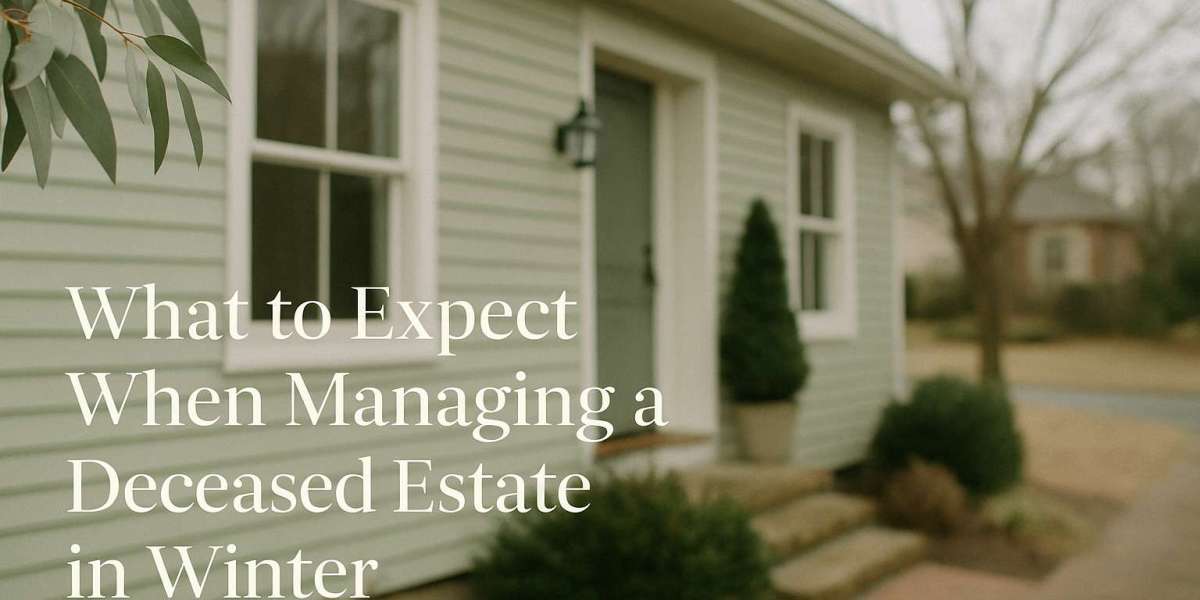Managing a deceased estate is never easy. When it happens during winter, especially in a place like Sydney where days are shorter and colder, it can feel even more overwhelming. The combination of practical tasks, emotional weight, and seasonal conditions often leaves families feeling stuck, unsure where to begin, or what’s legally expected.
For many families in Sydney, this is when they reach out for deceased estate services from trusted professionals who can support clearance, valuation, and property handling when there’s too much to do alone.
And while it might not ease the grief, knowing what’s ahead can make everything else just a little more manageable.
First steps after a loss
The first few days following a death are often filled with phone calls, questions, and quiet confusion. In winter, colder weather and limited daylight can make travel and communication harder, especially if family is scattered or roads are affected by seasonal storms.
Tasks typically include:
- Notifying close family members and the person’s GP
- Locating the will (if one exists)
- Registering the death and obtaining the death certificate
- Securing the home and any assets
This initial phase is about making sure everything is safe, logged, and preserved. If you’re the executor, it’s also your legal responsibility to carry out the wishes outlined in the will. That includes managing all financial, legal, and material matters on behalf of the deceased.
Legal and financial paperwork
Winter is already filled with delays, and that can affect how fast institutions process estate documents. Allow time for paperwork to move through banks, government offices, and insurance companies. It helps to have key information ready early on.
Gather these documents if you can:
- Will or Letter of Administration (if no will exists)
- Death certificate (official copy)
- Identity documents (passport, licence, Medicare)
- Property deeds and lease agreements
- Financial statements and insurance policies
These will help with notifying the ATO, superannuation funds, banks, and any government bodies. Understanding what happens after someone dies in Australia will guide you through pensions, Centrelink, and other support transitions.
If the estate includes a home, especially one that will need to be cleared or sold, start assessing what’s in the property and what may require professional handling.
Clearing the home: emotional and practical realities
Clearing a property can be one of the hardest parts of the process. In winter, it’s not just colder — it’s often darker, slower, and more draining. Many homes haven’t been touched in years, and it takes time to work through not just items, but memories.
Practical estate clearing involves:
- Sorting personal belongings by type (keep, donate, recycle)
- Arranging transport or storage for larger furniture
- Disposing of perishables and items affected by cold or damp
- Making the property safe for future visits, inspections, or staging
There’s no rush to finish this all at once. Some families clear room by room. Others rely on experienced providers to manage the deceased estate clean-up process in a way that respects the family’s pace while reducing the strain.
In winter, consider preparing hot drinks, keeping gloves and coats handy, and working in pairs. Small steps matter.
Managing family expectations and responsibilities
The legal executor is often a family member, but not always the most prepared one. The role carries emotional, financial, and legal responsibility, and tensions can arise, especially when multiple people feel entitled to a say.
Common sticking points:
- Disagreements over items of sentimental value
- Varying opinions on how soon to sell the home
- Pressure to move faster than feels comfortable
- Misunderstandings about the role of the executor
Good communication helps. So does having a clear checklist of next steps. When emotions run high, a neutral third party — whether a solicitor or estate services provider — can help clarify expectations.
Some find it helpful to refer to internal guides focused on navigating estate responsibilities, providing structure and reassurance during an emotionally foggy time.
Timeframes and seasonal delays
Winter can affect timelines more than most people expect. Colder weather and short daylight hours mean you might only get a few practical hours in a property each day. Booking skip bins, tradespeople, or clearance teams may also take longer, especially around school holidays or end-of-financial-year periods.
Plan ahead by:
- Allowing extra time for service bookings
- Checking power and utilities before entering the property
- Arranging lighting if working after 4:30 p.m.
- Taking photos early in the day if listing the property online
Also, keep in mind that winter is often when pipes burst, mould appears, or heating systems fail. Attend to urgent maintenance before it becomes a liability.
When professional help makes a difference
Some families handle every part of a deceased estate themselves — and that’s completely valid. But if you’re time-poor, out of area, or dealing with a large or cluttered home, professional services can remove a huge amount of stress.
These services may include:
- Full property clearance
- Secure document handling
- Valuation and appraisal services
- Rubbish removal and environmentally responsible disposal
- Coordination with real estate agents or solicitors
In winter, this becomes even more useful when illness, mobility limitations, or school holidays make personal availability harder. A reputable team can work to your schedule, keep you updated, and ensure nothing is lost, discarded, or rushed.
Final thoughts: practical, patient, and personal
There’s no ideal time to manage a deceased estate. But if it happens in winter, allow yourself time. The process is rarely linear, and no two families handle it the same way. Grief doesn’t follow a checklist, and neither should you.
Stay focused on one task at a time. Don’t rush the emotional parts. And if you need help — whether from a professional, a friend, or a guide like this — there’s no shame in reaching for it.
Winter is a season for rest, reflection, and gentle closure. If you’re handling a loved one’s estate in Sydney this season, know that doing it with care and respect is what truly matters.


